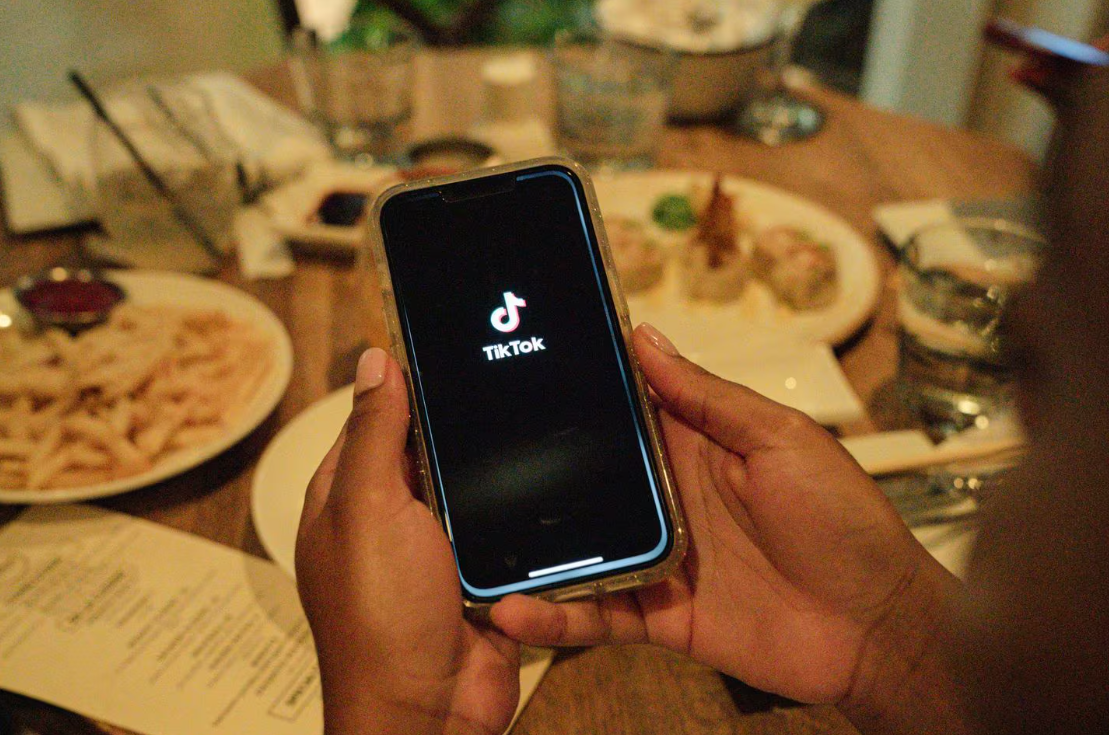TikTok 禁令:是为了收集数据还是为了惩罚中国?

【中美创新时报2024 年 6 月 8 日编译讯】(记者温友平编译)无论是照片编辑软件、游戏应用程序,还是基本的手电筒下载——是的,应用程序都在收集您的数据。TikTok 定于 9 月出庭,以抗议国会和拜登政府迫使该应用程序撤资或停止运营的决定。希望它能获胜。《波士顿环球报》刊登的Parkview 研究所高级研究员乔恩·德克尔 (Jon Decker) 的署名文章作了下述阐述。
拜登总统签署的两党立法将迫使字节跳动出售该应用程序或在美国禁止该应用程序,但墨迹未干,阿肯色州参议员汤姆·科顿(Tom Cotton)就警告说,另一款应用程序“比 TikTok 更危险”。与 TikTok 一样,Temu 也归一家中国公司所有。由于担心同一家大型控股公司旗下的其他应用程序存在恶意软件,科顿将目光投向了 Temu,尽管 Temu 本身从未受到影响。
最大的揭露就在这里。国会对美国的一个关键贸易伙伴进入了麦卡锡式的偏执状态,这对商业的未来有着重大影响。但现在,科顿透露,立法者正在准备对中国制造的应用程序进行塞勒姆女巫审判,我们终于在这场辩论中有了知识诚实。
现在向美国人提出的问题是,中国公司是否应该被允许为你开发应用程序?
与数千种可以下载的其他应用程序相比,TikTok 的数据收集做法并没有什么独特之处。2014 年,许多文章都谈到了即使是最基本的手电筒应用程序也可能收集各种用户数据。具有讽刺意味的是,由于苹果的权限系统更强大,它的 iPhone 用户比其他智能手机用户更不容易受到攻击。值得注意的是,司法部目前正卷入针对苹果的反垄断诉讼,该诉讼声称,苹果的论点毫无根据,即其默认应用商店对于提高设备的安全性是必要的。也许苹果可以将此作为“证据 A”。

无论是照片编辑软件、游戏应用程序,还是基本的手电筒下载——是的,应用程序都在收集您的数据。不仅如此,数据经纪人还在出售您的数据,这意味着来自世界各国的人们都可以购买它。TikTok 的数据收集做法并不新颖,只是更成功——因为一亿美国人想要它的产品。
请记住,任何地方的公司和个人都有能力通过应用程序或其他方式收集您的数据——国会对中国采取这种态度难道不显得有点荒谬吗?
我并不是要美化中国政府——尽管它并不是唯一一个被许多人认为过于专制的政府——但让我们正确地将其置于背景中。
如今的中国比我祖父在 20 世纪 90 年代初访问的中国更加经济繁荣。我记得他最生动的观察是,似乎每个人都使用自行车作为交通工具,因为几乎没有人买得起汽车。如今,汽车、麦当劳和星巴克在中国的大城市越来越常见。
有人可能会争辩说,经过几十年的重大经济进步和向更开放的市场迈进,中国在最近几年倒退了一步。但让我们记住它来自哪里——过去 40 年里,有超过 8 亿人摆脱了贫困。这一巨大的人类苦难减轻是一个不容忽视的人道主义成功故事。
看到政客们一方面责备中国过于专制,另一方面又禁止美国人与中国公司交易,真是令人尴尬。美国人应该有自由选择他们使用哪些产品和服务,以及与谁做生意。如果一位中国科学家发现了一种治疗癌症的方法,我们都会想要得到它。当我们考虑到我们的经济联系降低了未来发生冲突的可能性时,与中国的贸易就变得更加重要。简而言之,轰炸客户对任何一方来说都不是好事。
这就是为什么我们不能忽视如果让政客继续走这条路将带来的灾难性后果。它的尽头在哪里——互联网分裂?
也许我有点激进。但我认为如果一个来自中国的人发明了一款可以改善你生活的应用程序,你应该能够拥有它。
乔恩·德克尔 (Jon Decker) 是 Parkview 研究所的高级研究员。
题图:现在向美国人提出的问题是,是否应该允许中国公司为您开发应用程序?SHURAN HUANG/NYT
附原英文报道:
TikTok ban: Is it about data collection or punishing China?
Whether it’s a photo editing software, a gaming app, or even a basic flashlight download — yes, apps are collecting your data.
By Jon DeckerUpdated June 8, 2024
The question now being put forth to Americans is should Chinese companies be allowed to make apps for you?SHURAN HUANG/NYT
TikTok is set for a September court appearance to contest the decision of Congress and the Biden administration to force the app to divest or cease operations. Let’s hope it prevails.
The ink hadn’t even dried on President Biden’s signature on bipartisan legislation that would force ByteDance to sell the app or have it be banned in the United States before Senator Tom Cotton of Arkansas warned another app was “more dangerous than TikTok.” Like TikTok, Temu is owned by a Chinese company. Cotton has set his sights on Temu due to malware concerns stemming from other apps owned by the same major holding company, even though Temu has never been found to have been impacted itself.
Therein lies the big reveal. Congress has entered a McCarthy-esque state of paranoia against a critical US trading partner that has major ramifications for the future of commerce. But now that Cotton revealed that lawmakers are preparing Salem witch trials against Chinese-made apps, we finally have intellectual honesty in this debate.
The question now being put forth to Americans is should Chinese companies be allowed to make apps for you?
There is nothing unique about TikTok’s data collection practices compared to thousands of other apps that one can download. In 2014, many articles were written on how even a basic flashlight app could potentially collect all sorts of user data. Ironically, Apple’s iPhone customers were supposedly less vulnerable than other smartphone users due to their more robust permission system. This is noteworthy because the Department of Justice is now embroiled in an antitrust lawsuit against Apple that claims, among other things, that there is no merit to Apple’s argument its default app store is necessary to improve safety and security on the device. Maybe Apple can use this as “Exhibit A.”
Whether it’s a photo editing software, a gaming app, or even a basic flashlight download — yes, apps are collecting your data. Not only that, but data brokers are selling your data, meaning people from countries all over the world are able to buy it. TikTok isn’t novel in its data collection practices, it’s just more successful — because a hundred million Americans want its product.
While bearing in mind that companies and people anywhere have the ability to collect data on you through apps or other means — doesn’t it seem a little ridiculous Congress has taken this posture toward China?
I don’t mean to romanticize the Chinese government — though it’s hardly alone as a government many would deem too authoritarian — but let’s properly contextualize it.
The China of today has more economic prosperity than the China my grandfather visited in the early 1990s. I recall his most vivid observation was how seemingly everyone used bicycles as transportation because hardly anyone could afford a car. Today cars, McDonalds, and Starbucks are an increasingly common sight in China’s major cities.
One might quibble that, after these decades of significant economic progress and moving toward more open markets, China has taken a step back in most recent years. But let’s remember where it came from — and that over 800 million people have been lifted out of poverty in the past 40 years. This enormous alleviation of human suffering is a humanitarian success story that cannot be overlooked.
It is embarrassing to watch politicians scold China for being too authoritarian on the one hand while banning Americans from transacting with Chinese companies with the other. Americans should have the freedom to choose which products and services they use, as well as who they conduct business with. If a Chinese scientist discovered a cure for cancer, we would all want access to it. Trade with China is of even greater importance when we consider that our economic ties reduce the likelihood of future conflict. Simply put, it’s not good business for either side to bomb its customers.
That is why we cannot lose sight of the disastrous consequences if we let politicians continue down this road. Where does it end — a bifurcated internet?
Maybe I’m radical. But I think if a person from China invents an app that improves your life, you should be able to have it.
Jon Decker is a senior fellow at the Parkview Institute.

